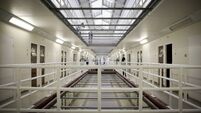Businesses struggling for workers criticise visa delays

More than half of Irish businesses (55%) are looking to invest in staff skills over the next year, a jump on the 35% investing in staff skills in the first half of 2021.
Labour shortages and visa delays have been identified as a significant constraint on growth by Irish businesses emerging from the Covid-19 crisis, a new survey has found.
The fight for talent in the workforce has also led to a rise in labour costs for employers, according to the latest Grant Thornton International Business Report (IBR).











